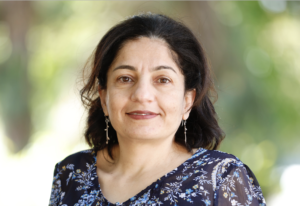Regional Representative Spotlight: Dr. Sawsan Abdulrahim

In this Regional Representative Spotlight, we focus on Dr. Sawsan Abdulrahim, an Associate Professor in the Department of Health Promotion and Community Health, Faculty of Health Sciences, at the American University of Beirut. She is also a Health and Human Rights Fellow (2023-2024) at the Palestine Program for Health and Human Rights based at the FXB Center for Health and Human Rights at Harvard University. Additionally, Dr. Sawsan is the ISSBD Regional Representative for the Middle East.
Can you tell us about your educational background and how your journey led you to specialize in developmental science?
I have a Ph.D. in Public Health from the University of Michigan, Ann Arbor. I initially began my academic research journey with studies on the health of Arab immigrants in the United States. After moving to Lebanon and starting an academic position in the Faculty of Health Sciences at the American University of Beirut, I commenced several research studies on the health of women migrant workers and refugees in Lebanon. My work in this area spans the life course. In one study, for example, I examine the life trajectories of refugee girls that put them at risk of early marriage. In another study, I looked at social relations and health in old age among refugees in Lebanon.
Could you share a few highlights from your career that showcase your significant contributions to the field?
I am committed to and have been engaged for years in community-based research. One of the studies I have been carrying out for a few years now addresses the social phenomenon of early marriage among Syrian refugee adolescent girls. This has been a flagship study in my institution as it moves the discourse on early marriage from a sensationalist approach that blames the victims to a structural system to examine the social forces that maintain the practice and even increase it in displacement settings.
As the Regional Representative for the Middle East, what motivated you to take on this role, and what do you hope to achieve in this position?
I am interested in developmental science and very keen on highlighting research from the Middle East and North Africa (MENA) region that moves from cross-sectional studies to studies incorporating a developmental and life course approach. I am also interested in connecting regional researchers and showcasing their work during ISSBD conferences.
How do you envision fostering collaboration and knowledge exchange among developmentalists in the Middle East?
As a first step, I plan to organize a panel during the upcoming ISSBD conference for a few scholars who conduct developmental science research in the MENA to convene, exchange ideas, and plan how to build a larger and multi-country network of like-minded researchers.
What are some unique challenges and opportunities for promoting developmental science in the Middle East, and how do you plan to address them?
A main challenge, in my view, is that researchers work in silos, and research is compartmentalized by topic or outcome, for example, substance use among or sexual health of adolescents. Instead, I believe that a developmental approach is more productive in understanding how health and illness unfold over time in a person’s life course.
In your opinion, why is it important for researchers and professionals in the Middle East to engage with ISSBD?
It is absolutely important for researchers from the MENA to engage with the international community in whatever area of research they are engaged in. This will serve to de-exceptionalize the region and contribute to knowledge exchange across different intersecting experiences.
What advice would you give to young researchers or students interested in pursuing a career in developmental science, particularly in the Middle East?
My advice is to adopt a life course and multidisciplinary approach in their research pursuits.
You can connect with Dr. Sawsan Abdulrahim via X(Twitter) or LinkedIn.